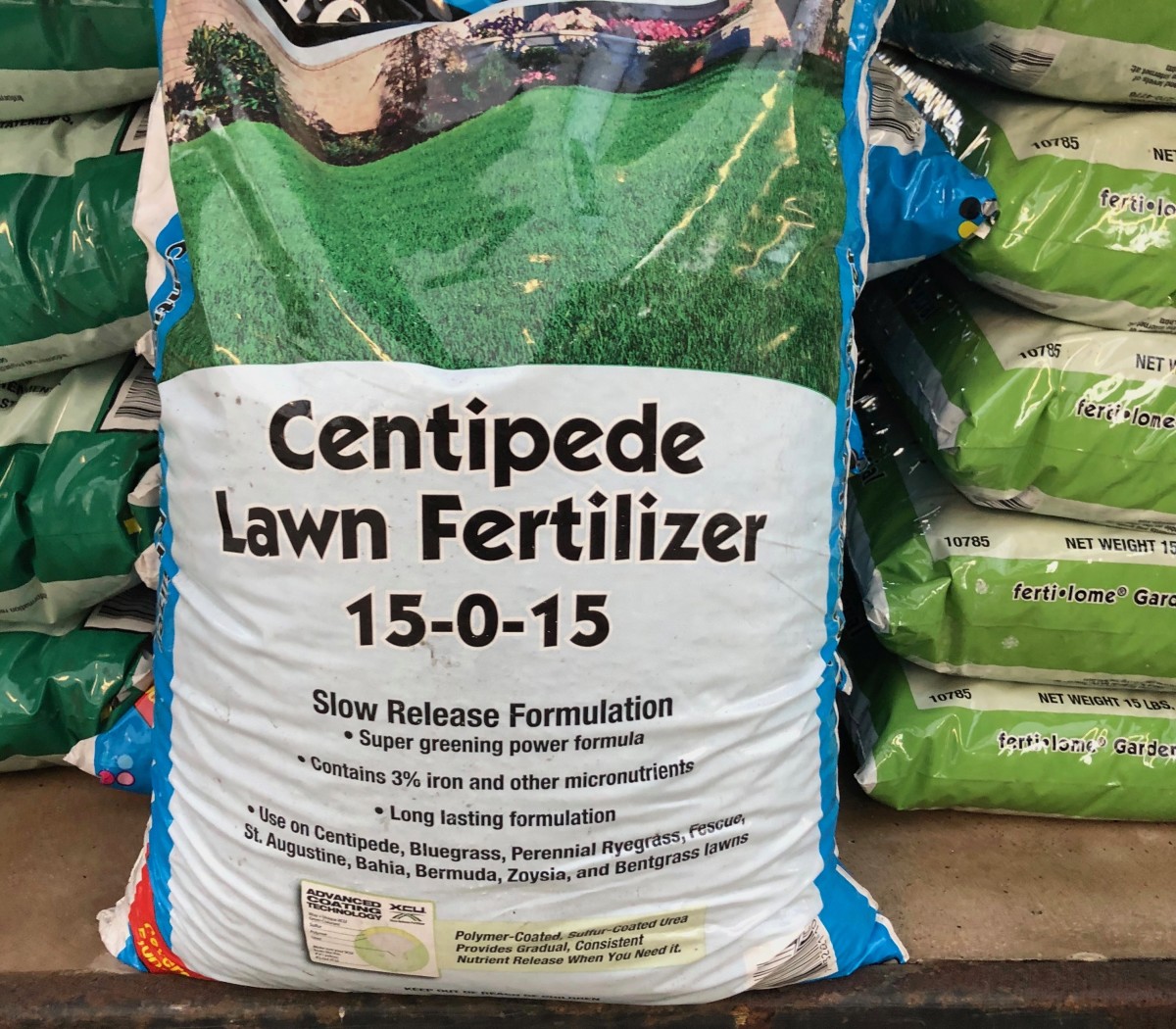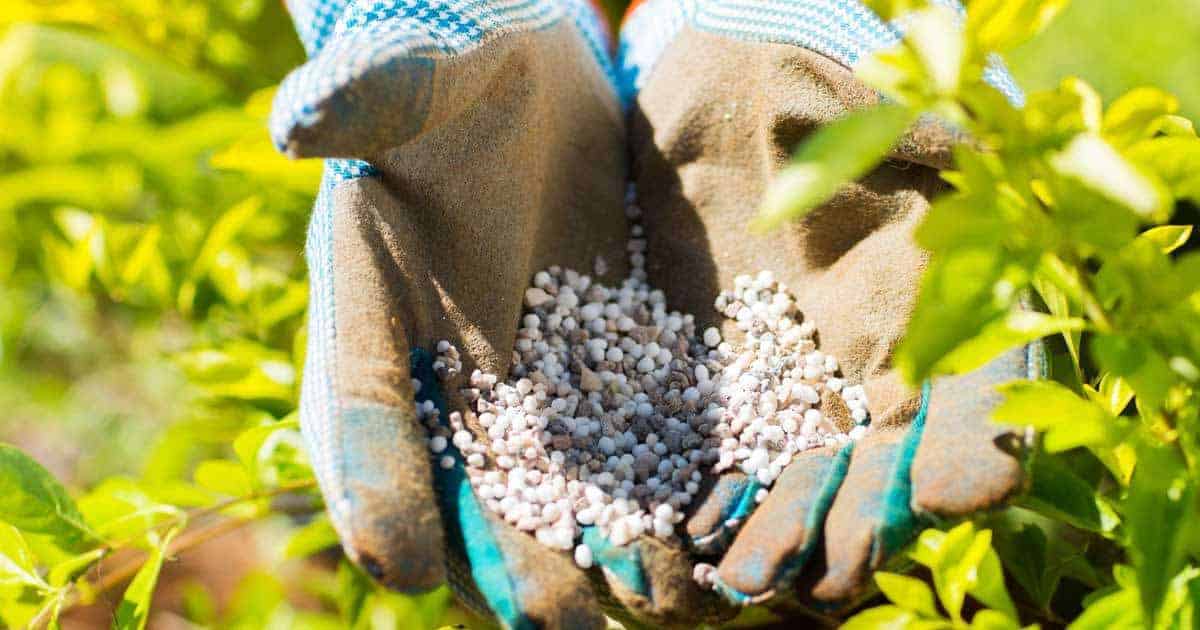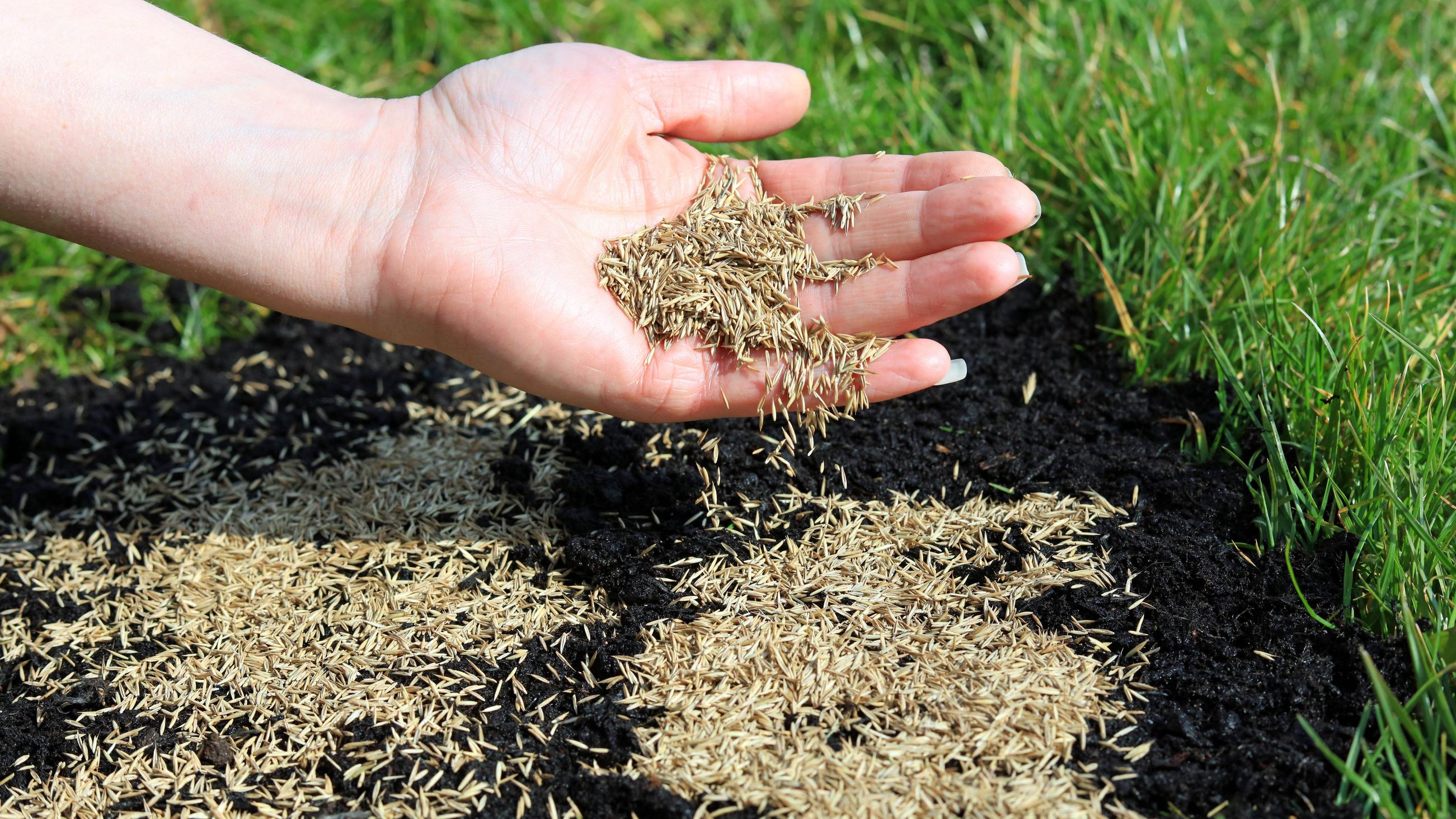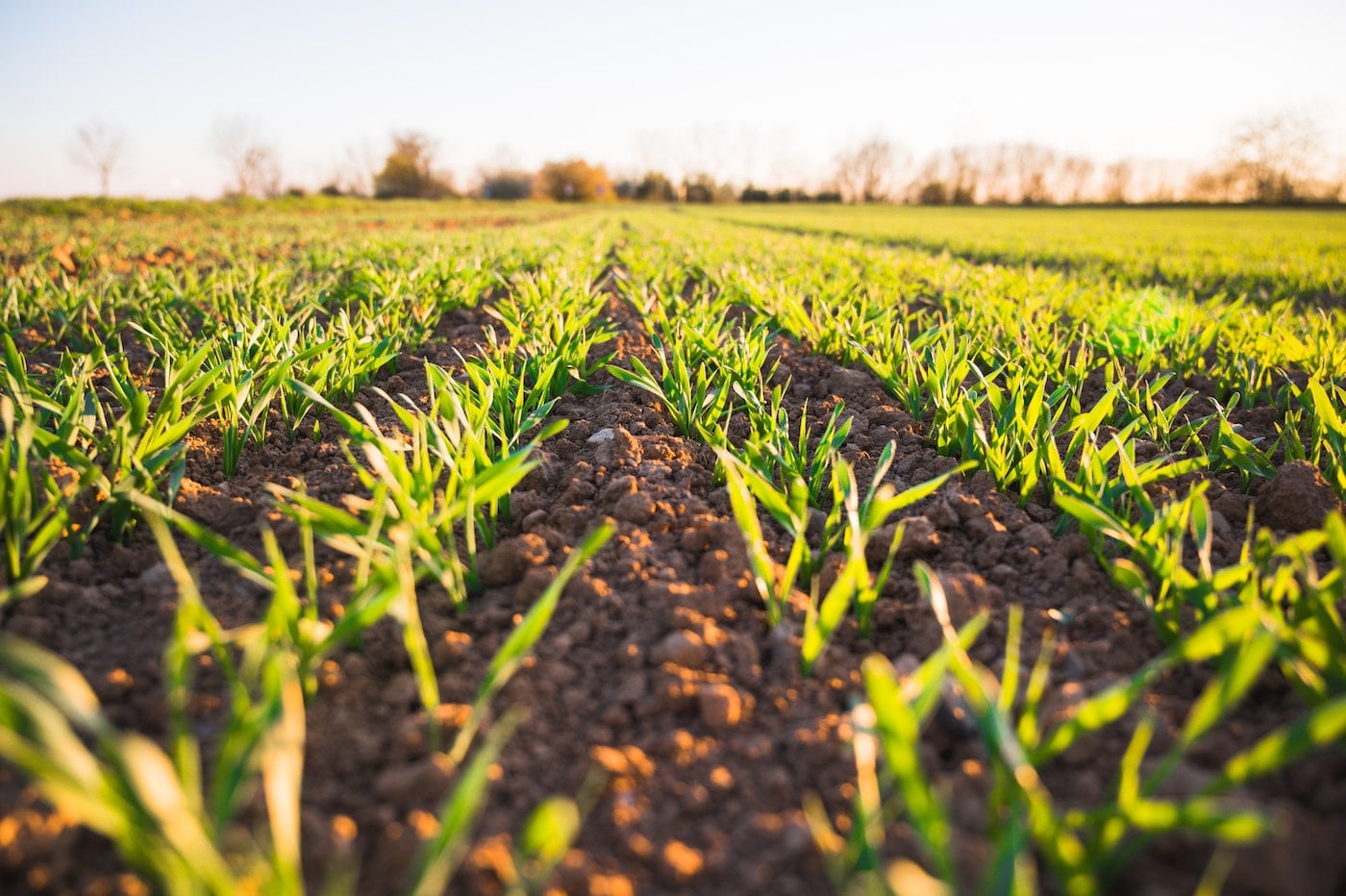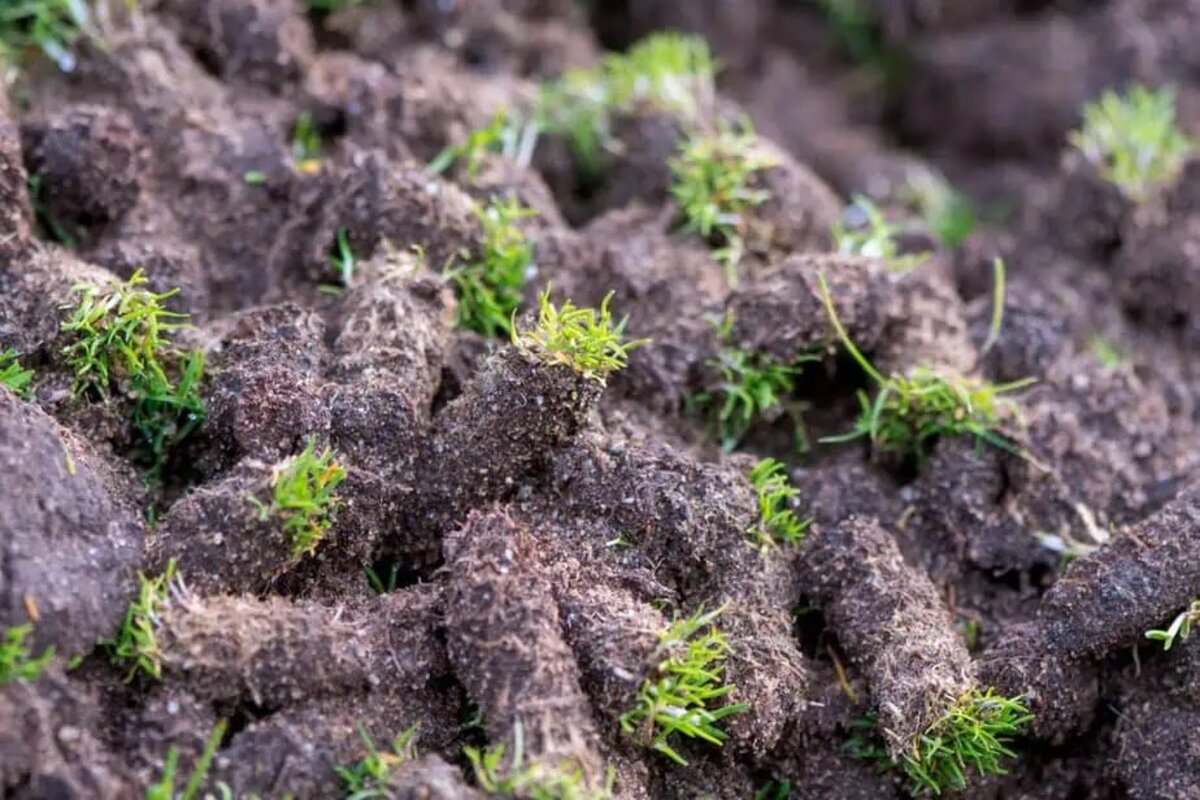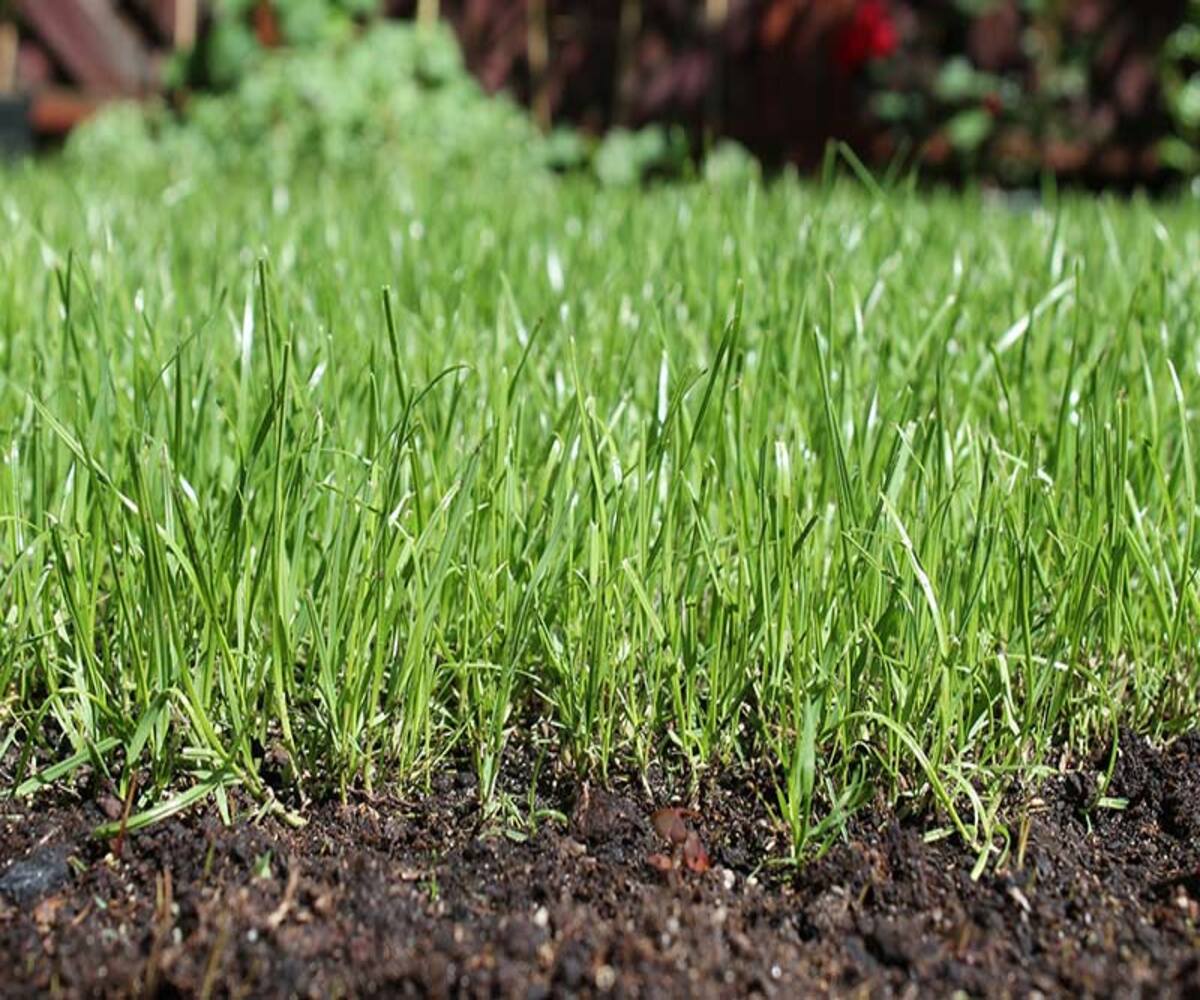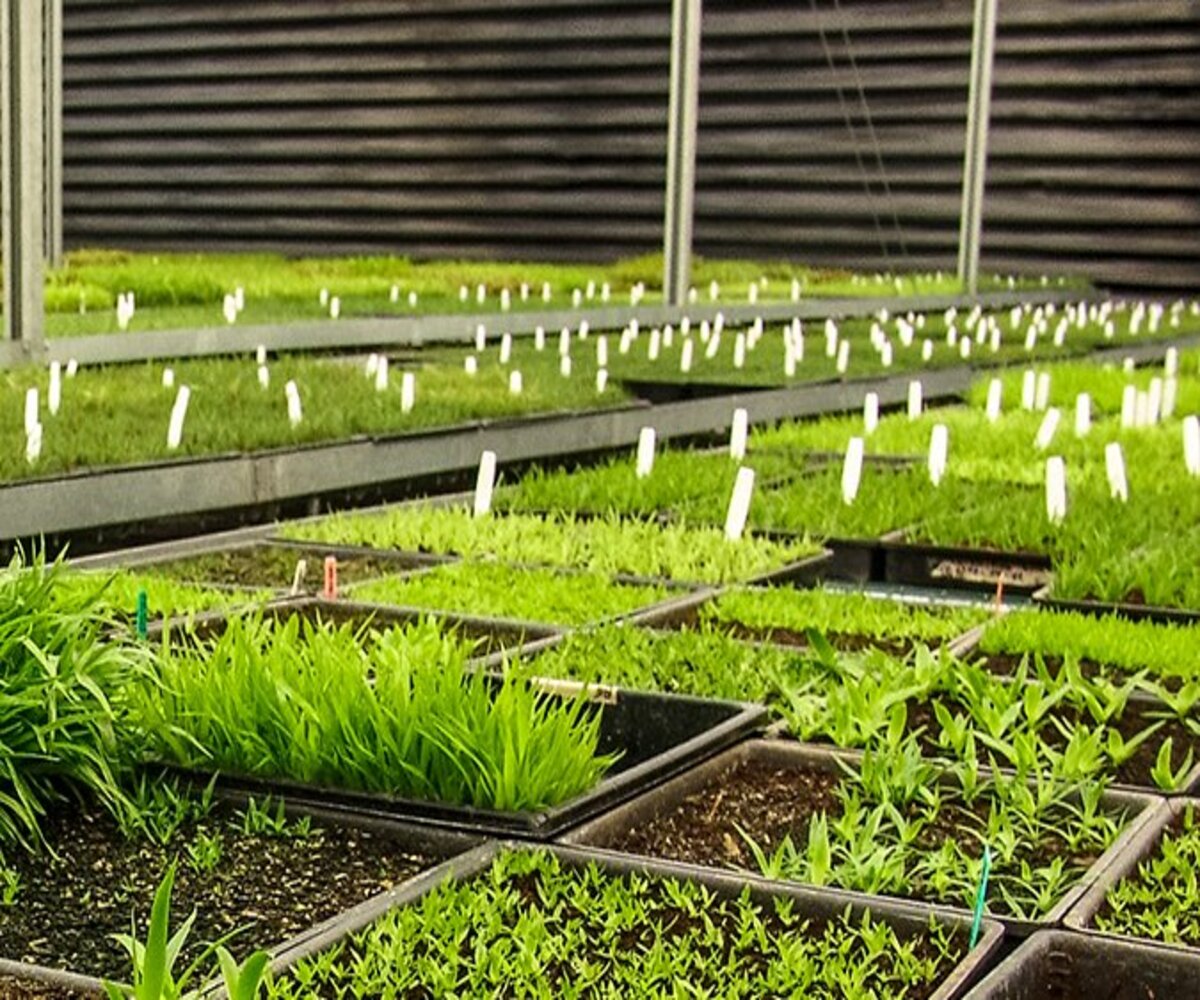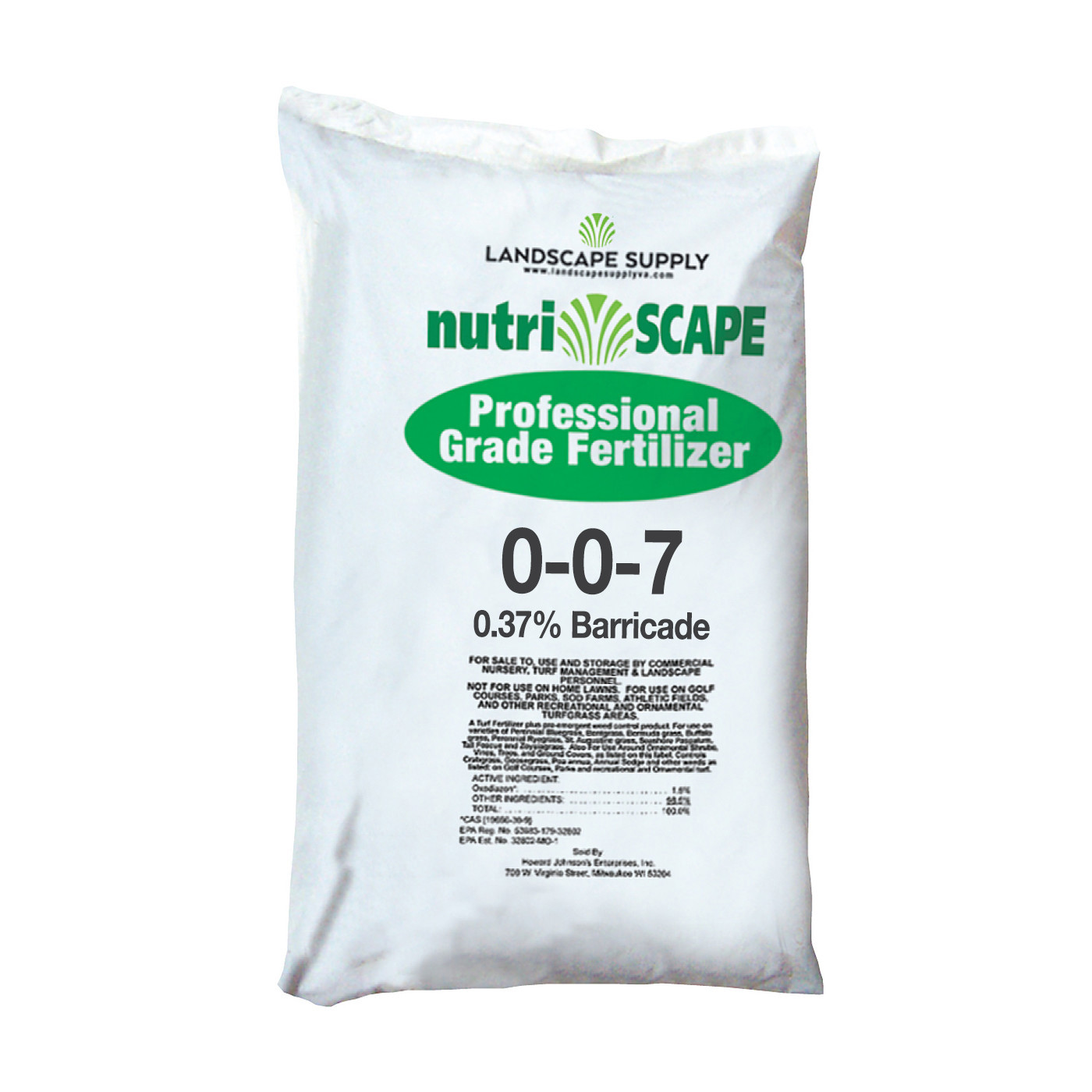Home>Gardening Techniques>What Fertilizer To Use In Summer
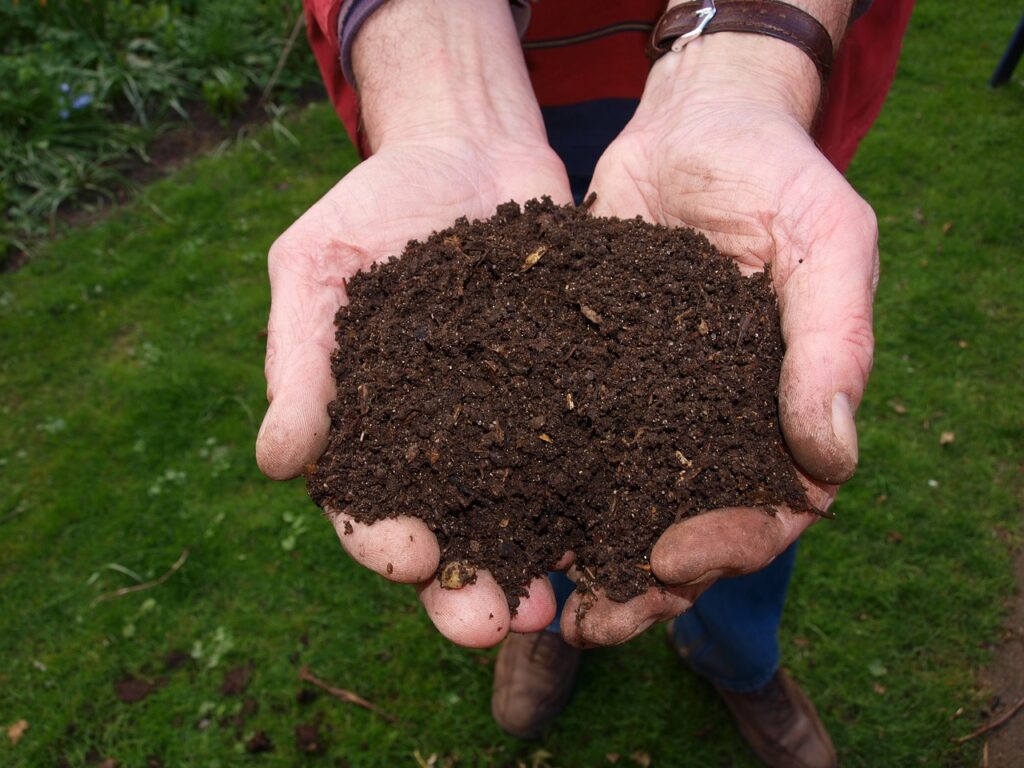

Gardening Techniques
What Fertilizer To Use In Summer
Published: August 5, 2023
Discover the best fertilizer to use in summer for your seasonal gardening needs. Enhance the growth and vitality of your plants with our expert-recommended tips and techniques.
(Many of the links in this article redirect to a specific reviewed product. Your purchase of these products through affiliate links helps to generate commission for Chicagolandgardening.com, at no extra cost. Learn more)
Table of Contents
- Introduction
- Importance of using appropriate fertilizer in summer
- Factors to consider when choosing fertilizer for summer
- Types of fertilizers suitable for summer gardening
- Nitrogen-based fertilizers for summer
- Phosphorus-based fertilizers for summer
- Potassium-based fertilizers for summer
- Organic fertilizers for summer gardening
- Application tips for using fertilizer in summer
- Precautions when using fertilizer during the summer
- Conclusion
Introduction
Gardening is a rewarding and fulfilling hobby, especially during the summer months when plants are in full bloom. However, achieving vibrant and healthy gardens requires proper care and attention, including the use of the right fertilizers. Selecting the appropriate fertilizer for your seasonal gardening needs is vital to ensure optimal growth and nourishment for your plants.
Choosing the right fertilizer for summer gardening can be a bit overwhelming, given the wide variety of options available. Understanding the importance of using the appropriate fertilizer, as well as the key factors to consider when making your choice, is crucial for successful and bountiful gardening.
This article will provide a comprehensive guide on selecting the right fertilizer for your summer gardening needs. We will discuss the different types of fertilizers suitable for summer, highlight the essential nutrients to look for, and offer valuable application tips and precautions to ensure the health and vitality of your plants.
By the end of this article, you will have a solid understanding of the importance of choosing the right fertilizer for your summer garden and the knowledge to make informed decisions that will lead to flourishing plants and a beautiful outdoor space.
Importance of using appropriate fertilizer in summer
Summer is a critical time for plants, as they are exposed to higher temperatures, increased sunlight, and longer days. These conditions can put a considerable amount of stress on plants, making it essential to provide them with the necessary nutrients to thrive.
The use of appropriate fertilizer during the summer months is crucial for several reasons:
- Enhanced Growth: Fertilizers provide plants with essential nutrients, which promote healthy growth and development. During summer, when plants are actively growing, they require an extra boost of nutrients to support the production of flowers, fruits, and foliage.
- Nutrient Replenishment: Continuous irrigation and higher temperatures can lead to the leaching of nutrients from the soil. Fertilizers help replenish these essential elements, ensuring that plants receive an adequate supply of nutrients to sustain their health and vitality.
- Improved Tolerance to Stress: Summer heat and drought conditions can cause stress to plants, making them more susceptible to diseases, pests, and overall decline. Using a well-balanced fertilizer can help strengthen plants’ immune systems and increase their tolerance to stressors.
- Optimal Flowering and Fruit Production: Many gardeners look forward to the vibrant blooms and bountiful harvests that summer brings. By providing the right nutrients through fertilizers, you can encourage abundant flowering and fruiting, resulting in a visually stunning garden and a delicious harvest.
Using the appropriate fertilizer in summer ensures that your plants have the necessary resources to thrive in challenging conditions. However, it is important to select a fertilizer that suits the specific needs of your plants and the characteristics of your soil.
In the next section, we will explore the key factors to consider when choosing the right fertilizer for your summer gardening endeavors.
Factors to consider when choosing fertilizer for summer
When selecting a fertilizer for your summer garden, it is essential to consider several factors to ensure the best results. These factors include:
- Nutrient Composition: Different plants have varying nutrient requirements. It is crucial to select a fertilizer that provides the ideal balance of essential nutrients, including nitrogen (N), phosphorus (P), and potassium (K), commonly known as NPK. Understanding the specific needs of your plants will help you choose the right fertilizer with the appropriate NPK ratio.
- Solubility: The solubility of a fertilizer determines how quickly the nutrients are available to plants. Granular fertilizers release nutrients slowly over time, making them suitable for long-term nourishment. On the other hand, water-soluble fertilizers provide nutrients immediately, which can be beneficial for quick fixes or foliar feeding.
- Application Method: Consider the application method that suits your gardening style and the needs of your plants. Some fertilizers are applied to the soil, while others can be sprayed directly onto the foliage. Choose a fertilizer that aligns with your preferred application technique to ensure ease and efficiency.
- Soil pH: Understanding the pH level of your soil is crucial, as it directly affects the availability of nutrients to plants. Certain fertilizers are specifically formulated for acid-loving plants, while others are suitable for soils with neutral pH levels. Conducting a soil test will help you determine the pH and select a fertilizer that complements your soil’s acidity.
- Slow-release vs. Quick-release: Slow-release fertilizers provide a continuous supply of nutrients over an extended period, reducing the risk of nutrient overload and potential harm to plants. Quick-release fertilizers, on the other hand, provide an immediate nutrient boost but may require more frequent applications. Consider the needs of your plants and your maintenance preferences when choosing between these two options.
- Environmental Impact: Look for fertilizers that are environmentally friendly and have minimal negative effects on ecosystems. Avoid synthetic fertilizers containing high levels of chemicals that can potentially harm beneficial organisms or contaminate water sources.
Consider these factors when choosing the right fertilizer for your summer garden. Understanding the specific needs of your plants, the characteristics of your soil, and your own gardening preferences will help you make an informed decision that will contribute to the overall health and success of your garden.
Types of fertilizers suitable for summer gardening
There are various types of fertilizers available on the market, each catering to different plants and gardening needs. When it comes to summer gardening, certain types of fertilizers are more suitable for providing the necessary nutrients. Let’s explore some of the most common types:
- Nitrogen-based fertilizers: Nitrogen (N) is essential for promoting lush foliage growth in plants. Nitrogen-based fertilizers are ideal for leafy vegetables, lawns, and plants that require a boost in green growth. However, excessive use of nitrogen during hot summer months can lead to increased susceptibility to pests and diseases, so it’s important to use them judiciously.
- Phosphorus-based fertilizers: Phosphorus (P) is crucial for root development, overall plant health, and the promotion of blooms and fruiting. Phosphorus-based fertilizers are beneficial for flowering plants, fruit trees, and plants that need a root system boost. Look for fertilizers with a higher middle number in the NPK ratio, indicating a higher phosphorus content.
- Potassium-based fertilizers: Potassium (K) is essential for enhancing plant tolerance to stress, disease resistance, and improving overall plant vigor. Potassium-based fertilizers are suitable for most plants, especially those growing in hot and dry conditions. Look for fertilizers with a higher last number in the NPK ratio, indicating a higher potassium content.
- Organic fertilizers: Organic fertilizers are derived from natural sources, such as compost, manure, bone meal, and seaweed. They provide a slow-release of nutrients and improve soil health over time. Organic fertilizers are suitable for a wide range of plants and are environmentally friendly. They help to build soil structure, retain moisture, and support beneficial soil organisms.
- Specialty fertilizers: There are also specialty fertilizers available for specific plants or gardening goals. For example, there are citrus-specific fertilizers for citrus trees, acid-loving plant fertilizers for plants like blueberries and azaleas, and balanced fertilizers that provide an equal NPK ratio for general-purpose use. Consider the specific needs of your plants and choose specialty fertilizers accordingly.
It’s important to note that the type of fertilizer you choose should align with the specific needs of your plants, the nutrient deficiency present in your soil, and the goals you have for your garden. Consulting with local garden centers or horticulturists can provide valuable insights into the most suitable fertilizers for your specific gardening conditions.
In the next sections, we will dive deeper into the benefits of nitrogen, phosphorus, potassium, and organic fertilizers for summer gardening, as well as provide application tips and precautions to ensure successful fertilization.
Nitrogen-based fertilizers for summer
Nitrogen (N) is an essential nutrient for promoting healthy foliage growth in plants. During the summer months, when plants are actively growing, nitrogen-based fertilizers can provide the necessary boost to support lush green foliage. However, it’s important to use nitrogen-based fertilizers judiciously and consider the specific needs of your plants. Here are some key points to know:
Benefits of nitrogen:
- Lush foliage: Nitrogen is a primary component in chlorophyll, which is responsible for green pigmentation in plants. Adequate nitrogen levels result in vibrant and healthy foliage.
- Enhanced growth: Nitrogen is essential for promoting overall plant growth, including stem and leaf development. It’s particularly beneficial for leafy vegetables, as it encourages abundant leaf production.
- Quick absorption: Nitrogen is readily absorbed by plants, allowing for quick utilization and visible results in a short period of time.
Considerations when using nitrogen-based fertilizers:
- Proper dosage: It’s important to follow the manufacturer’s instructions and avoid over-fertilization when using nitrogen-based fertilizers. Excessive nitrogen can lead to weak and leggy growth, as well as increase the susceptibility of plants to pests and diseases.
- Timing: Nitrogen-based fertilizers are best applied at the beginning of the growing season or during periods of active growth. Applying nitrogen fertilizers too late in the summer can result in excessive leaf growth and inhibit the development of flowers and fruits.
- Watering: Adequate watering is essential when using nitrogen-based fertilizers to prevent the risk of nutrient leaching from the soil. Ensure that the soil is adequately moist before applying the fertilizer and follow up with thorough watering after application.
- Foliar application: In some cases, foliar application of nitrogen-based fertilizers can provide quick nutrient uptake by the leaves. This method is particularly useful for plants that have difficulty absorbing nutrients from the soil or when immediate correction is needed for nutrient deficiencies.
Some common types of nitrogen-based fertilizers include ammonium sulfate, urea, and fish emulsion. These fertilizers come in different forms, such as granules, powders, or liquid concentrates. Choose the type of nitrogen-based fertilizer that suits the specific needs of your plants and follow the recommended application guidelines.
Nitrogen-based fertilizers can be beneficial for promoting healthy foliage growth during the summer months. However, it’s important to exercise caution and use them appropriately to avoid any negative impacts on plant health. In the next sections, we will explore the benefits of phosphorus, potassium, and organic fertilizers for summer gardening, as well as provide application tips and precautions to ensure successful fertilization.
Phosphorus-based fertilizers for summer
Phosphorus (P) is an essential nutrient for plants, especially during the summer months when they are actively growing and flowering. Phosphorus-based fertilizers can provide the necessary boost to support root development, overall plant health, and the promotion of blooms and fruiting. Here are some key points to know about phosphorus-based fertilizers:
Benefits of phosphorus:
- Root development: Phosphorus plays a crucial role in promoting strong and healthy root systems. It stimulates root growth and enhances the ability of plants to absorb water and nutrients from the soil.
- Flower and fruit production: Phosphorus is essential for the formation of flowers and fruits. It aids in the transfer of energy within the plant, promoting the development of vibrant blooms and ensuring a bountiful harvest.
- Overall plant health: Phosphorus contributes to the overall health and vitality of plants. It supports the production of enzymes, improves nutrient uptake and utilization, and enhances the plant’s ability to withstand environmental stresses.
Considerations when using phosphorus-based fertilizers:
- Soil testing: Conduct a soil test to determine the phosphorus levels in your soil. This will help you make informed decisions regarding the appropriate application of phosphorus-based fertilizers. If the soil already has sufficient phosphorus, additional application may not be necessary and could risk nutrient imbalances.
- Proper application: Follow the recommended application rates and guidelines provided by the manufacturer. Applying excessive amounts of phosphorus can lead to nutrient runoff and harm the environment.
- Placement: When applying phosphorus-based fertilizers, it’s beneficial to place them near the root zone of the plant, where they can be readily absorbed. Avoid direct contact with the plant’s stem, as it can cause potential damage.
- Watering: Adequate watering is crucial after applying phosphorus-based fertilizers to help the nutrients reach the plant’s root zone. The moisture will aid in the absorption and utilization of phosphorus by the plant.
Some common types of phosphorus-based fertilizers include rock phosphate, superphosphate, and bone meal. These fertilizers come in various forms, such as granules, powders, or pellets. Choose the type of phosphorus-based fertilizer that suits the specific needs of your plants and follow the recommended application guidelines.
Using phosphorus-based fertilizers in your summer garden can provide the necessary nutrients for root development, flower and fruit production, and overall plant health. Remember to use them responsibly and in accordance with your soil’s needs to ensure the best results. In the following sections, we will explore the benefits of potassium-based and organic fertilizers for summer gardening, as well as provide application tips and precautions to ensure successful fertilization.
Potassium-based fertilizers for summer
Potassium (K) is a vital nutrient for plants, particularly during the summer months when they face heat and drought stress. Potassium-based fertilizers can provide the necessary boost to enhance plant tolerance to stress, improve disease resistance, and promote overall plant vigor. Here are some key points to know about potassium-based fertilizers:
Benefits of potassium:
- Stress tolerance: Potassium helps plants cope with various environmental stressors, such as heat, drought, and cold. It improves the plant’s ability to regulate water usage, reducing the negative impacts of water scarcity.
- Disease resistance: Potassium plays a crucial role in strengthening plant cell walls, making them more resistant to disease pathogens and pests.
- Vigor and quality: Potassium supports healthy plant growth and improves overall vigor. It aids in the production of proteins and enzymes, enhances nutrient uptake, and promotes quality attributes such as flavor, color, and shelf life.
Considerations when using potassium-based fertilizers:
- Soil testing: Conduct a soil test to determine the potassium levels in your soil. This will help you determine whether additional potassium application is necessary. Excessive potassium can lead to nutrient imbalances and hinder the plant’s uptake of other essential nutrients.
- Proper application: Follow the recommended application rates and guidelines for potassium-based fertilizers. Applying excessive amounts can cause potential harm to the environment and may result in imbalances in nutrient uptake.
- Timing: It’s beneficial to apply potassium-based fertilizers during the early stages of plant growth and development. This allows plants to establish a strong foundation and build resilience to stressors later in the season.
- Watering: Adequate watering is crucial to facilitate the absorption and utilization of potassium by the plant. Proper moisture levels in the soil ensure that the nutrients are accessible and readily absorbed by the root system.
Common types of potassium-based fertilizers include potassium sulfate, potassium nitrate, and wood ash. These fertilizers are available in various forms, such as granules, powders, or liquid concentrates. Choose the type of potassium-based fertilizer that suits the specific needs of your plants and follow the recommended application guidelines.
Using potassium-based fertilizers in your summer garden can enhance plant tolerance to stress, improve disease resistance, and promote overall plant vigor. Ensure responsible use and consider your soil’s specific needs to maximize the benefits. In the following sections, we will explore the benefits of organic fertilizers for summer gardening, as well as provide application tips and precautions to ensure successful fertilization.
Organic fertilizers for summer gardening
Organic fertilizers offer a natural and environmentally-friendly option for nourishing your summer garden. Derived from organic materials such as compost, manure, bone meal, and seaweed, these fertilizers provide a range of benefits for plant growth and soil health. Here are some key points to know about using organic fertilizers in your summer garden:
Benefits of organic fertilizers:
- Nutrient-rich soil: Organic fertilizers enrich the soil with essential nutrients and micronutrients, promoting the overall health and fertility of the soil. These nutrients are released slowly over time, ensuring a steady and continuous supply for plants.
- Improved soil structure: Organic fertilizers help improve soil structure by increasing its ability to hold water and nutrients. They enhance soil aeration, drainage, and microbial activity, creating an ideal environment for plant growth.
- Long-term sustainability: Organic fertilizers are environmentally-friendly and contribute to the long-term sustainability of your garden. They reduce the risk of chemical runoff into water sources and support the growth of beneficial microorganisms that aid in nutrient cycling.
- Slow-release of nutrients: Organic fertilizers provide a slow and steady release of nutrients, preventing the risk of nutrient burn or excessive growth. This slow-release mechanism ensures that plants receive a consistent supply of nutrients without the risk of overfertilization.
Considerations when using organic fertilizers:
- Application timing: Organic fertilizers should be applied well in advance of planting or during the early stages of plant growth. This allows time for the nutrients to break down and become available to plants when they need them most.
- Use of compost: Incorporating compost into your soil is an excellent way to improve its overall fertility and structure. Compost provides a rich source of organic matter and nutrients, enhancing the growth and health of your plants.
- Complementary soil amendments: Depending on your soil’s specific needs, you can supplement organic fertilizers with other soil amendments such as lime to adjust pH levels or rock dust to provide additional micronutrients.
- Regular application: Organic fertilizers break down slowly over time, so regular application is necessary to maintain a consistent supply of nutrients. Monitor the growth and appearance of your plants to determine the appropriate frequency of application.
Organic fertilizers are versatile and suitable for a wide range of plants. They can be used in vegetable gardens, flower beds, herb gardens, and container gardening. By choosing organic fertilizers, you not only provide essential nutrients for your plants, but you also contribute to the long-term health and sustainability of your garden.
In the following sections, we will provide application tips and precautions to ensure successful fertilization during the summer months.
Application tips for using fertilizer in summer
Proper application of fertilizer is crucial for ensuring the health and vitality of your plants during the summer months. Here are some essential tips to consider when using fertilizer in your summer garden:
- Read and follow instructions: Always read and follow the instructions provided by the fertilizer manufacturer. Pay attention to the recommended application rates, timing, and frequency to avoid over-fertilization or nutrient imbalances.
- Know your plants: Different plants have different nutrient requirements. Understand the specific needs of your plants, including their preference for nitrogen, phosphorus, and potassium, and choose a fertilizer with the appropriate nutrient composition.
- Apply during cooler times: To prevent stress on plants, it’s best to apply fertilizer during the early morning or late afternoon when temperatures are cooler. This reduces the risk of fertilizer burn and allows plants to absorb nutrients more effectively.
- Water before application: Prior to applying fertilizer, ensure that the soil is adequately moist. This helps prevent fertilizer burn and allows for better nutrient absorption by the plants. Watering the soil before application also helps distribute the fertilizer evenly.
- Avoid direct contact: When applying fertilizer to the soil, avoid direct contact with the plant stems or foliage, as this can cause potential damage. Aim to distribute the fertilizer evenly around the plant’s root zone.
- Consider slow-release fertilizers: Slow-release fertilizers provide a steady and controlled release of nutrients over an extended period. This can be beneficial in reducing the risk of nutrient leaching and ensuring a continuous supply of nutrients for plants throughout the summer.
- Use organic matter: Incorporating organic matter, such as compost, into your soil improves its water-holding capacity, nutrient content, and overall structure. This enhances the efficiency of fertilizer uptake by plants and promotes healthy root development.
- Maintain proper watering: Adequate watering before and after fertilizer application is essential for proper nutrient uptake. Ensure that the soil is consistently moist, but not waterlogged, to facilitate the movement of nutrients to plant roots.
- Monitor and adjust: Regularly observe the growth and appearance of your plants to determine if any adjustments need to be made in fertilizer application. Signs of over-fertilization or nutrient deficiencies, such as leaf burn or yellowing, should be addressed promptly.
By following these application tips, you can ensure the effective and efficient use of fertilizer in your summer garden. Creating a balanced and nourishing environment for your plants will result in healthy growth, abundant blooms, and a successful harvest.
In the next section, we will discuss precautions to consider when using fertilizer during the summer months to ensure the safety of your plants and the environment.
Precautions when using fertilizer during the summer
While fertilizer is essential for the health and growth of your plants during the summer, it’s important to take certain precautions to ensure its safe and effective use. Here are some precautions to consider when using fertilizer in your summer garden:
- Wear protective gear: When handling and applying fertilizer, it’s a good practice to wear protective gear such as gloves and a mask. This helps prevent any potential skin irritation or inhalation of dust particles from the fertilizer.
- Keep fertilizer away from water sources: Fertilizers, especially those containing high levels of nitrogen or phosphorus, should be kept away from water bodies such as ponds, lakes, or streams. Avoid applying fertilizer near water sources to prevent runoff and potential water contamination.
- Store fertilizer properly: Ensure that fertilizer is stored in a cool, dry, and well-ventilated area, away from direct sunlight and moisture. Keep fertilizers out of reach of children and pets to prevent accidental ingestion or exposure.
- Do not over-fertilize: Over-fertilization can have detrimental effects on plant health. Follow the recommended application rates and timing to avoid nutrient imbalances, nutrient burn, and potential damage to the environment.
- Avoid fertilizing stressed plants: Stressed plants, such as those experiencing heat or drought stress, may not be able to effectively absorb and utilize fertilizers. It’s best to focus on providing proper irrigation and care to stressed plants before applying fertilizer.
- Do not apply in windy conditions: Applying fertilizer during windy conditions can result in it being blown off-target, increasing the risk of inhalation or drifting onto unintended areas. Choose calm days for fertilizer application to ensure even distribution and minimize any potential negative impacts.
- Follow specific fertilizer instructions: Different fertilizers may have specific instructions or precautions outlined on their packaging. Read and follow these instructions carefully to ensure safe and effective use.
- Avoid foliage contact: Direct contact between fertilizer and plant foliage can cause leaf burn or damage. Aim to apply fertilizers directly to the soil around the plant’s root zone, keeping them away from leaves, stems, and flowers.
- Dispose of excess fertilizer properly: If you have any excess fertilizer, avoid disposing of it in the regular trash or down the drain. Follow local regulations and guidelines for proper disposal to prevent environmental contamination.
By taking these precautions, you can ensure the safe and responsible use of fertilizers in your summer garden. Remember to prioritize the health of your plants, yourself, and the environment when applying fertilizer.
In the next section, we will conclude with a summary of the key points discussed in this article and reiterate the importance of choosing the right fertilizer for your summer gardening needs.
Conclusion
Choosing the right fertilizer is crucial for maintaining the health and beauty of your garden during the summer months. By understanding the importance of using appropriate fertilizers and considering the specific needs of your plants, you can provide the necessary nutrients for optimal growth and vitality.
We discussed the various factors to consider when choosing a fertilizer, including nutrient composition, solubility, application method, soil pH, and environmental impact. It’s essential to select a fertilizer that aligns with your plants’ requirements and the characteristics of your soil.
We also explored the benefits and considerations of different types of fertilizers suitable for summer gardening. Nitrogen-based fertilizers promote lush foliage, phosphorus-based fertilizers enhance root development and flowering, and potassium-based fertilizers improve stress tolerance and overall plant vigor. Organic fertilizers provide a sustainable and environmentally-friendly option that enriches the soil and supports long-term plant health.
Additionally, we provided application tips to ensure the effective use of fertilizer, such as following instructions, timing applications, proper watering, and monitoring plant health. Precautions were discussed to ensure the safe handling and disposal of fertilizers, as well as minimizing potential environmental impacts.
By carefully selecting and applying the right fertilizer, you can create an environment that supports the growth and success of your plants. Whether you have a vegetable garden, flower beds, or container plants, understanding the needs of your plants and providing the appropriate nutrients will contribute to a thriving garden.
Remember, gardening is a continuous learning process. Stay vigilant, observe the health of your plants, and make adjustments as needed. By applying the insights and tips shared in this article, you can enjoy a flourishing summer garden that brings joy and beauty throughout the season.
